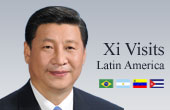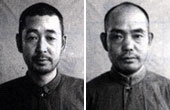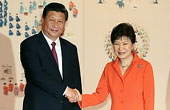Japan greenlights export of missile part to US
(Xinhua) Updated: 2014-07-17 22:13TOKYO - The Japanese government on Thursday gave the green light to export a Japanese-made missile component to the United States, marking the first such decision since the country eased restrictions on arms exports this April, local media reported.
Japan's National Security Council (NSC), a body set up under Prime Minister Shinzo Abe to speed up decision-making on defense and diplomacy, also decided the same day to conduct joint research with Britain on air-to-air missiles, said Japan's Kyodo News Agency.
Thursday's approval will allow Japan's Mitsubishi Heavy Industries Ltd. to export a high-performance sensor to a US defense company, which will use it in the Patriot Advanced Capability-2 (PAC-2) missile defense system to be exported to Qatar.
The sensor is a key component of an infrared device at the tip of the missile that identifies and tracks targets, the Nikkei business daily reported in an earlier report.
Regarding the joint missile research with Britain, Japan eyes an agreement on the occasion of a "two-plus-two" meeting of their respective foreign and defense ministers that may be held in Britain as early as September.
The missile in question is the Meteor air-to-air missile currently under development between Britain and several European countries, including France and Germany. It could be loaded on F- 35 stealth fighter jets that Japan's Self-Defense Forces are planning to introduce, said Kyodo News.
Until recently, Japan prohibited its companies from exporting weapons, except in some limited cases. But in April, the government eased its stance on its defense equipment transfer principles, allowing "arms exports if they serve the purpose of contributing to international cooperation and its security interests."
The controversial move has triggered vigilance both at home and abroad. Some critics say the new rules will ultimately aid international conflicts and undermine Japan's pacifist stance under the war-renouncing Constitution.
The original Japan's "three principles" on arms exports were adopted in 1967 and turned into a virtual blanket ban in 1976. They have been seen as a symbol of the country's pacifist stance.










